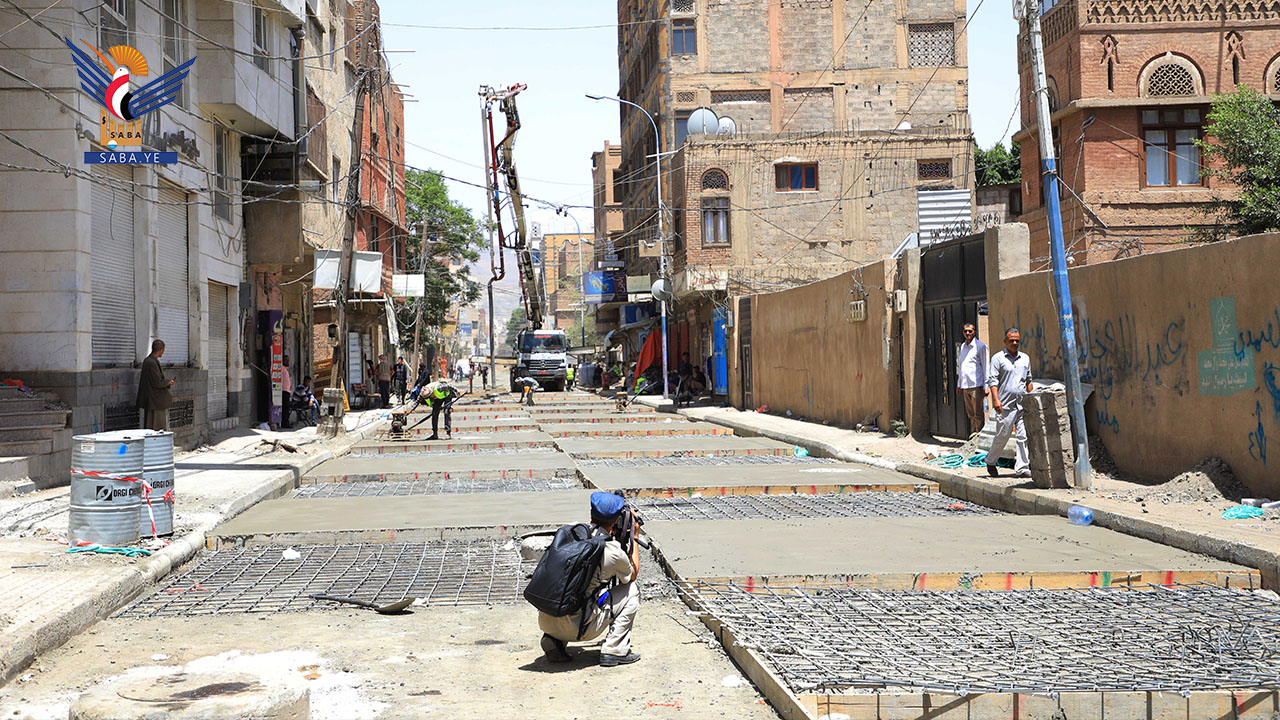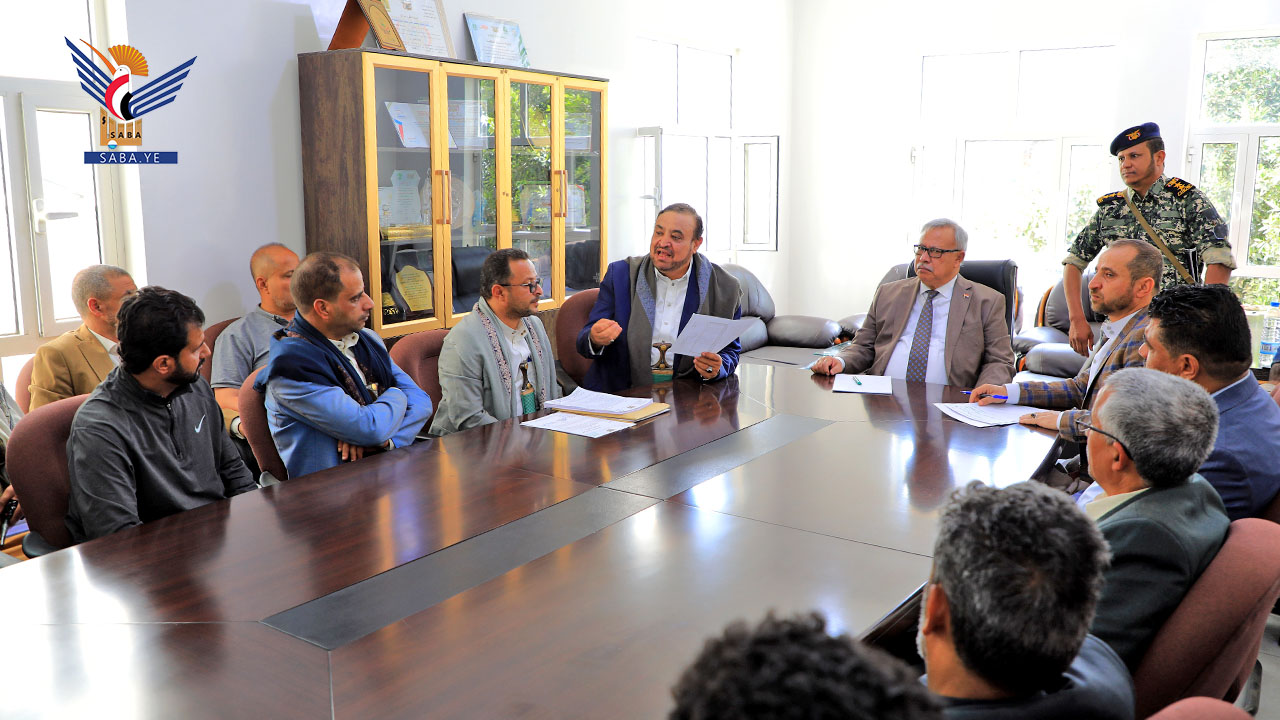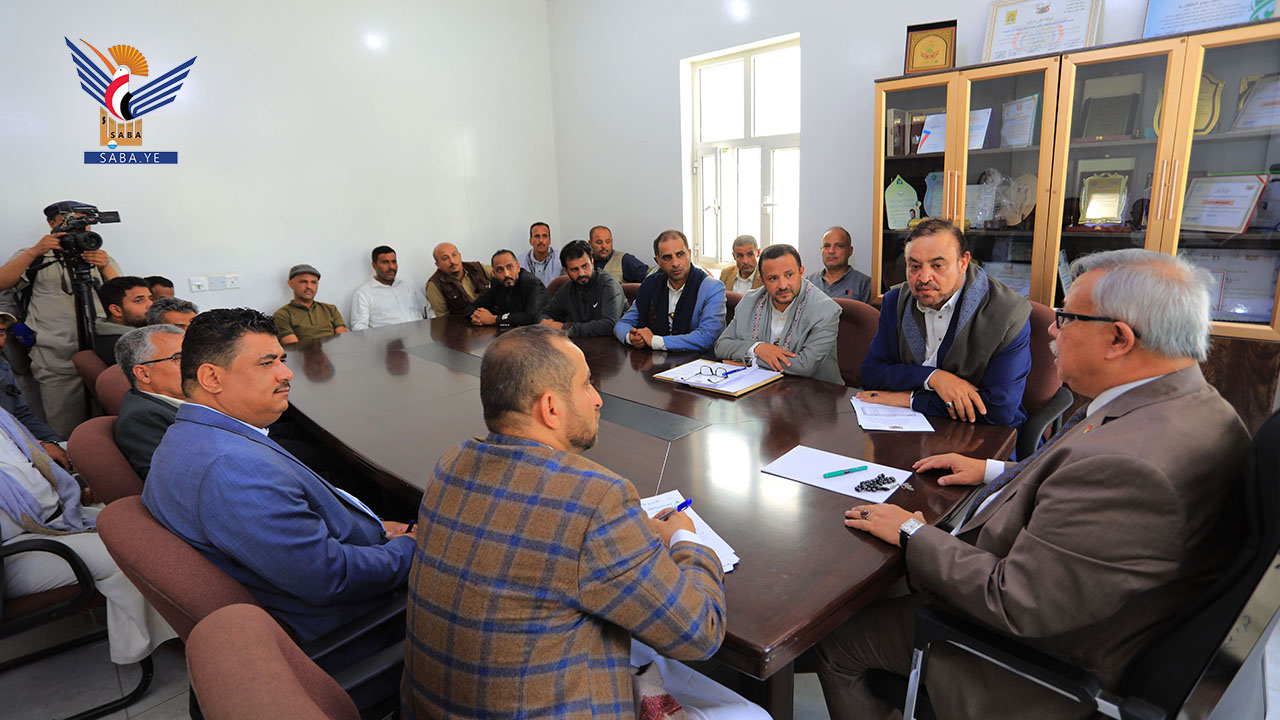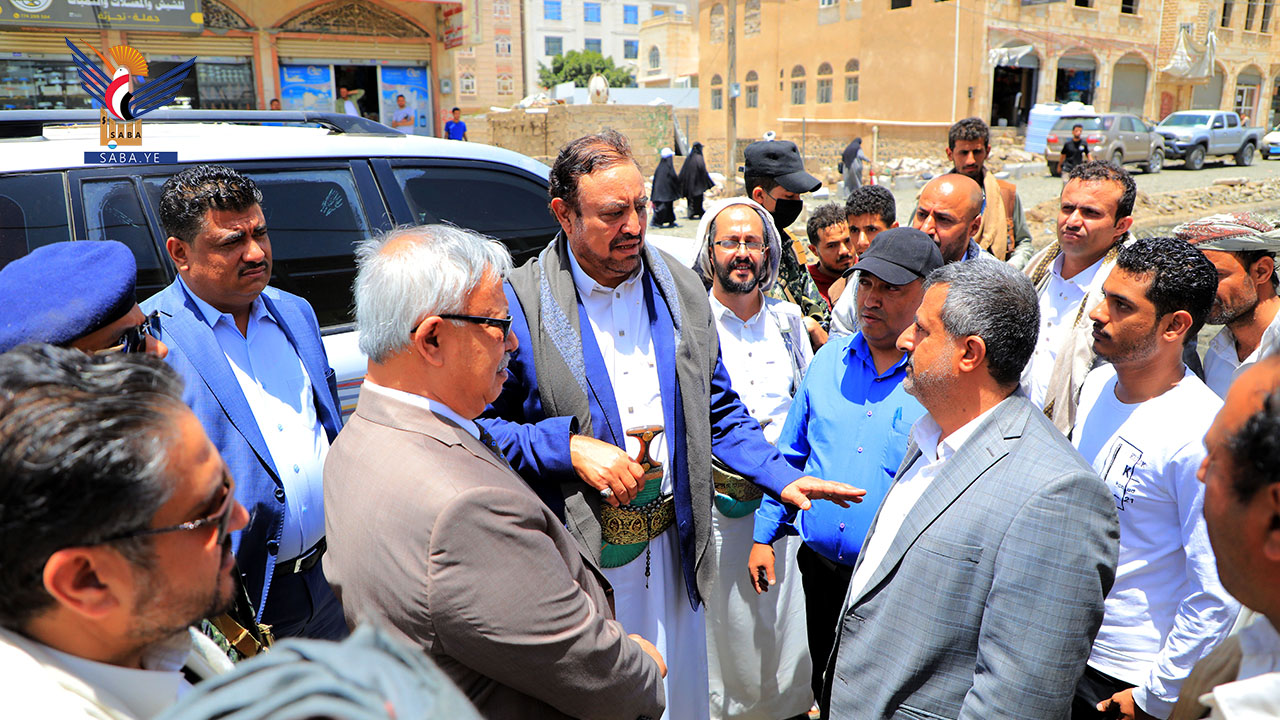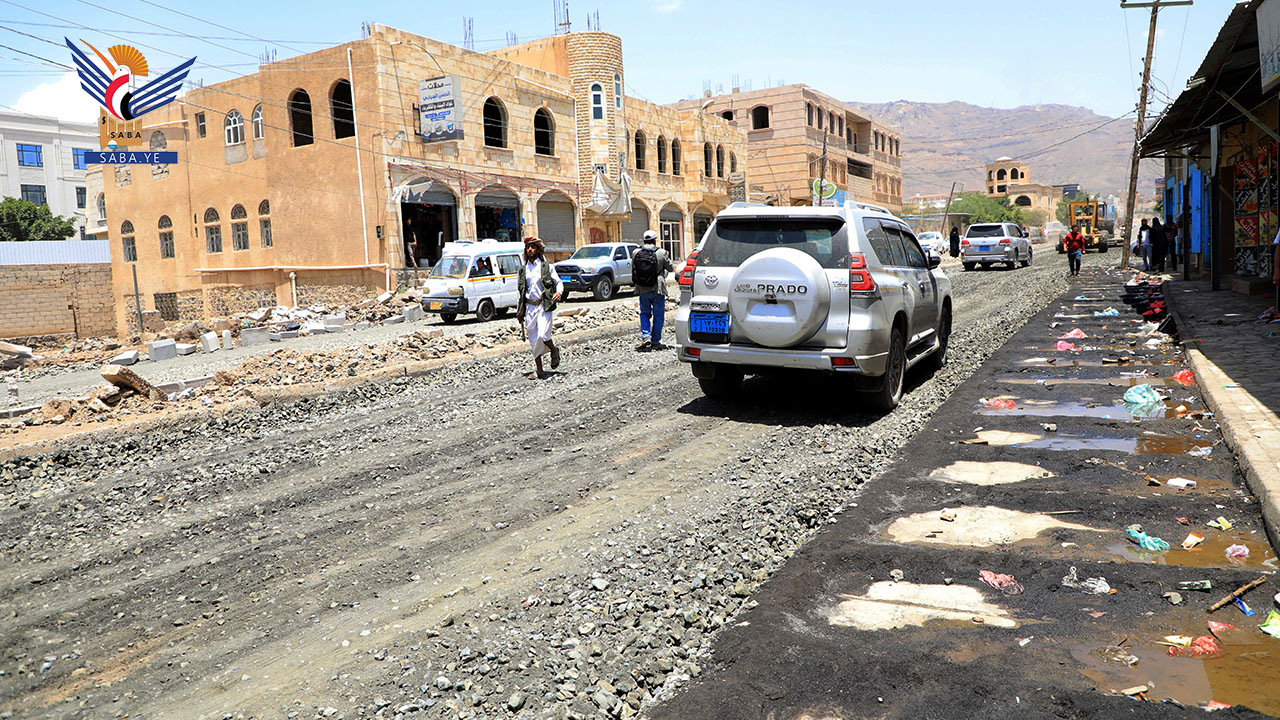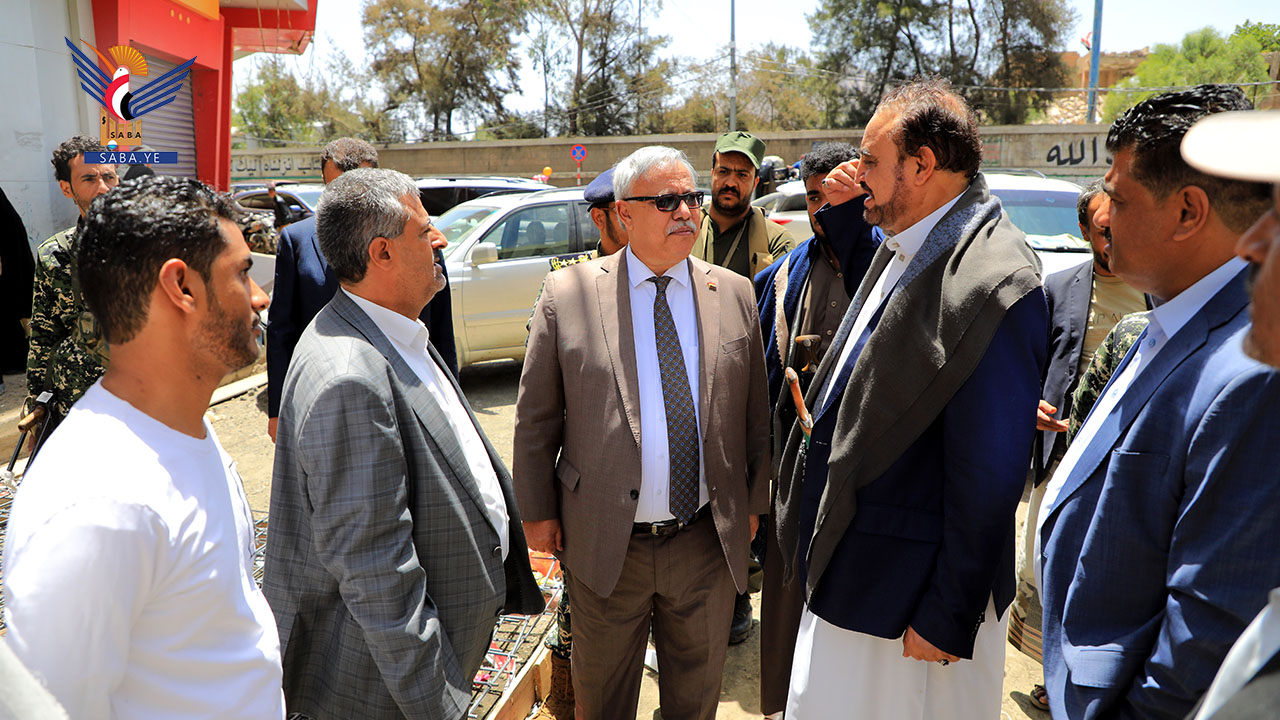
Sana'a - Saba:
Dr. Abdulaziz Saleh Bin Habtoor, a member of the Supreme Political Council, inspected the progress of work in the cleanliness sector of the Capital Secretariat and several service projects being implemented with local funding.
During his visit, Dr. Bin Habtoor met with the Capital’s Mayor, Dr. Hamoud Abbad, the Executive Director of the Fund, Mohammed Sharaf, and the head of the cleanliness sector, Ibrahim Al-Sarabi. They discussed the sector’s conditions, service levels, and the efforts being made to maintain clean streets and neighborhoods in the capital.
The meeting addressed the challenges facing the Fund’s general administration and the cleanliness project, primarily the scarcity of resources amid urban expansion in Sana’a, coupled with the influx of displaced people from various Yemeni provinces.
The Mayor and cleanliness officials spoke about the mechanisms for delivering services amid current challenges, noting that the cleanliness project has been repeatedly targeted by the US-Saudi-Emirati-Israeli-British aggression coalition to disrupt field operations, leading to waste accumulation , the spread of diseases and epidemics.
They highlighted the efforts of sanitation workers and the difficulties they face in covering all neighborhoods of the capital due to the increasing workload from continuous urban expansion. They explained that the amount of waste transported daily from various districts of the Secretariat to the Al-Azraqin landfill ranges between 1,800 and 2,000 tons.
Officials emphasized that the volume of waste requires significant resources , additional labor to implement plans and programs for this vital sector. They also pointed to the community’s responsibility in supporting official cleanliness efforts by disposing of waste in designated areas and avoiding littering on roads.
During the meeting, Dr. Bin Habtoor affirmed that the leadership pays special attention to Sana’a as the face of the Republic of Yemen and a safe haven for all citizens. He stressed the importance of supporting the Secretariat to carry out its development plans, cleanliness tasks, and urban improvement to showcase the capital’s civilized image.
He expressed gratitude to sanitation workers for their efforts in keeping the capital clean and collecting waste, urging everyone to redouble their efforts and implement plans to enhance cleanliness levels.
Later, Dr. Bin Habtoor, accompanied by Mayor Dr. Abbad, reviewed the progress of the first phase of the rehabilitation and asphalt construction project for Street 24 ("Bayt Al-Afeef") in the Al-Sabeen district.
They were briefed by the Secretariat’s Deputy for Projects Sector, Engineer Abdulkarim Al-Houthi, on the project’s components, which cost 193,748,000 Yemeni riyals, funded by the local authority. The project, which is 70% complete, spans 1,200 meters in length and 12 meters in width.
Dr. Bin Habtoor and Dr. Abbad also inspected the progress of another project to rehabilitate and repair some streets in Al-Umna neighborhood (Phase 1) in the Al-Wahda district, costing 278 million riyals, funded by the Secretariat and the community. The project is being implemented by the Executive Unit for Road Construction and Public Space Maintenance.
Dr. Bin Habtoor praised the local authority’s efforts in completing projects and continuing work despite the exceptional circumstances Yemen is undergoing.
He noted that despite the ongoing aggression’s challenges, efforts persist in construction, development, and the implementation of vital service projects. He wished the Capital Secretariat’s leadership and all administrative staff success in executing more priority projects.
Dr. Abdulaziz Saleh Bin Habtoor, a member of the Supreme Political Council, inspected the progress of work in the cleanliness sector of the Capital Secretariat and several service projects being implemented with local funding.
During his visit, Dr. Bin Habtoor met with the Capital’s Mayor, Dr. Hamoud Abbad, the Executive Director of the Fund, Mohammed Sharaf, and the head of the cleanliness sector, Ibrahim Al-Sarabi. They discussed the sector’s conditions, service levels, and the efforts being made to maintain clean streets and neighborhoods in the capital.
The meeting addressed the challenges facing the Fund’s general administration and the cleanliness project, primarily the scarcity of resources amid urban expansion in Sana’a, coupled with the influx of displaced people from various Yemeni provinces.
The Mayor and cleanliness officials spoke about the mechanisms for delivering services amid current challenges, noting that the cleanliness project has been repeatedly targeted by the US-Saudi-Emirati-Israeli-British aggression coalition to disrupt field operations, leading to waste accumulation , the spread of diseases and epidemics.
They highlighted the efforts of sanitation workers and the difficulties they face in covering all neighborhoods of the capital due to the increasing workload from continuous urban expansion. They explained that the amount of waste transported daily from various districts of the Secretariat to the Al-Azraqin landfill ranges between 1,800 and 2,000 tons.
Officials emphasized that the volume of waste requires significant resources , additional labor to implement plans and programs for this vital sector. They also pointed to the community’s responsibility in supporting official cleanliness efforts by disposing of waste in designated areas and avoiding littering on roads.
During the meeting, Dr. Bin Habtoor affirmed that the leadership pays special attention to Sana’a as the face of the Republic of Yemen and a safe haven for all citizens. He stressed the importance of supporting the Secretariat to carry out its development plans, cleanliness tasks, and urban improvement to showcase the capital’s civilized image.
He expressed gratitude to sanitation workers for their efforts in keeping the capital clean and collecting waste, urging everyone to redouble their efforts and implement plans to enhance cleanliness levels.
Later, Dr. Bin Habtoor, accompanied by Mayor Dr. Abbad, reviewed the progress of the first phase of the rehabilitation and asphalt construction project for Street 24 ("Bayt Al-Afeef") in the Al-Sabeen district.
They were briefed by the Secretariat’s Deputy for Projects Sector, Engineer Abdulkarim Al-Houthi, on the project’s components, which cost 193,748,000 Yemeni riyals, funded by the local authority. The project, which is 70% complete, spans 1,200 meters in length and 12 meters in width.
Dr. Bin Habtoor and Dr. Abbad also inspected the progress of another project to rehabilitate and repair some streets in Al-Umna neighborhood (Phase 1) in the Al-Wahda district, costing 278 million riyals, funded by the Secretariat and the community. The project is being implemented by the Executive Unit for Road Construction and Public Space Maintenance.
Dr. Bin Habtoor praised the local authority’s efforts in completing projects and continuing work despite the exceptional circumstances Yemen is undergoing.
He noted that despite the ongoing aggression’s challenges, efforts persist in construction, development, and the implementation of vital service projects. He wished the Capital Secretariat’s leadership and all administrative staff success in executing more priority projects.
